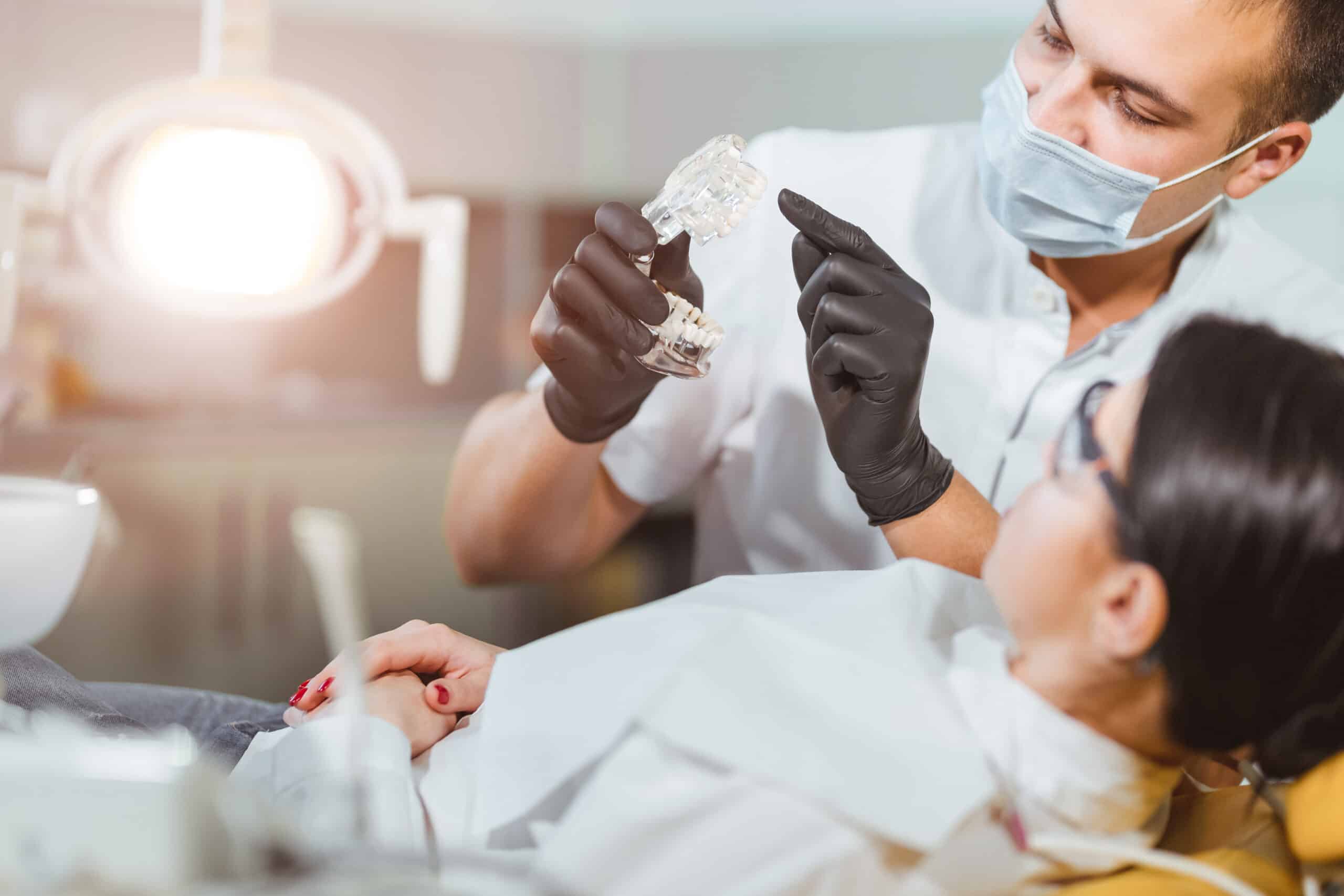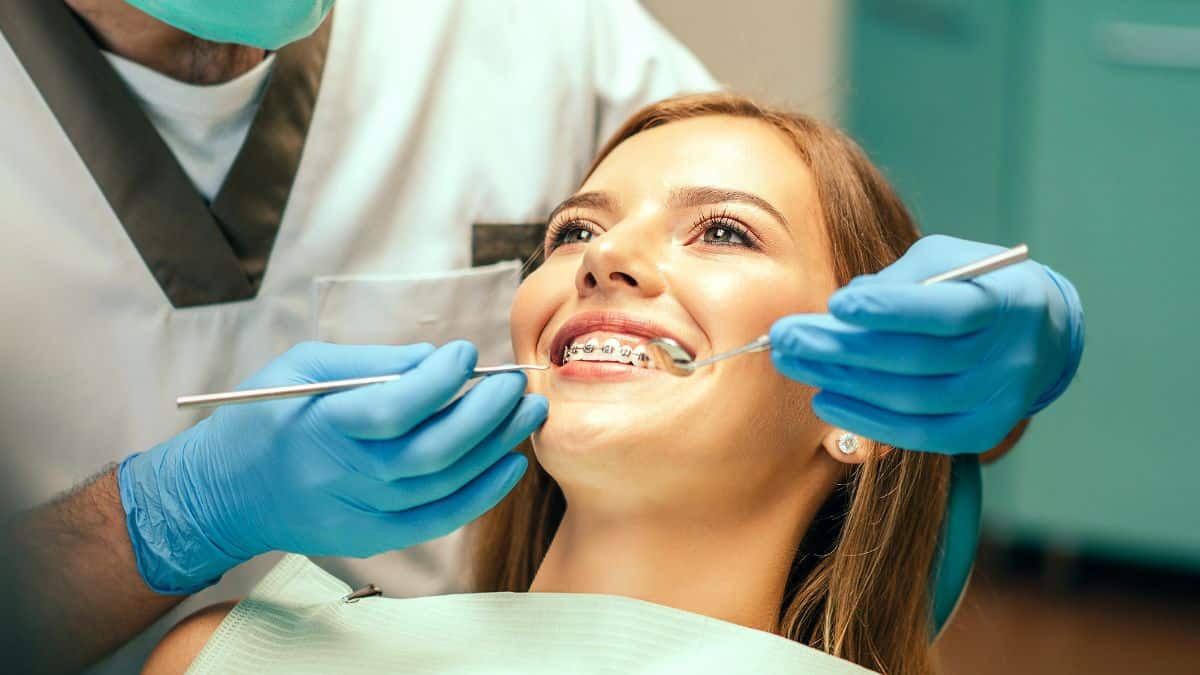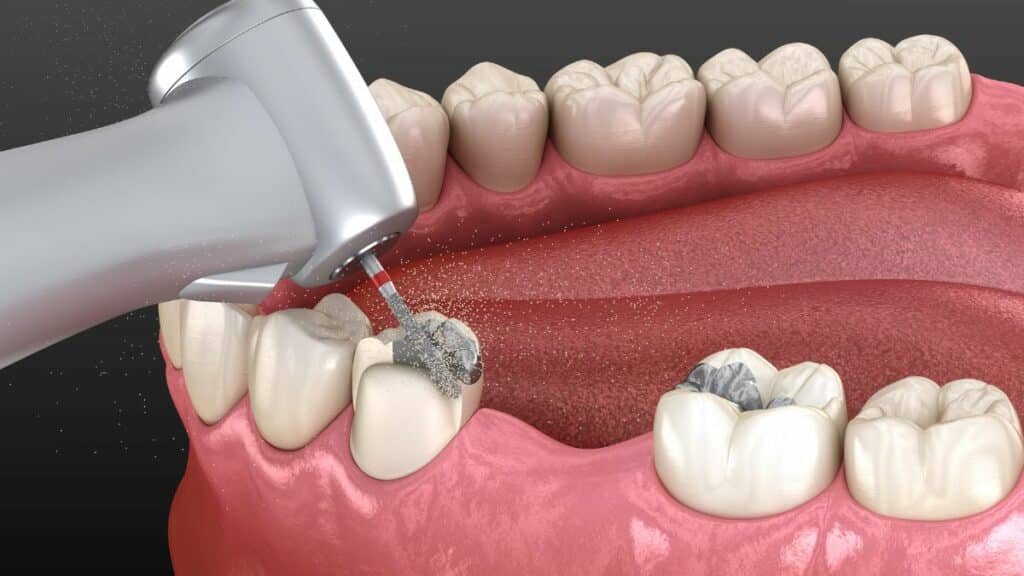Embarking on the journey to a straighter smile with braces often raises questions. One that I’ve come across frequently is, “Is it okay to change dentists for braces?” The answer, quite simply, is yes. It’s perfectly fine to switch your dentist when deciding on orthodontic treatment like braces. Let me delve into why this is acceptable and even sometimes advisable.
In general, all dental professionals aim for one thing – your oral health. However, not every dentist has specialized training in orthodontics which involves adjusting and aligning teeth using devices such as braces or retainers. This could be one reason you might consider changing dentists when opting for this type of treatment.
Moreover, comfort and confidence in your provider are crucial during any medical process—especially something as impactful as receiving braces—which can take months or even years of regular appointments. If you feel another dentist may better suit your needs or provide superior care throughout the course of wearing braces—it’s absolutely acceptable to make that switch!
Remember though: while switching providers can be beneficial under certain circumstances—it should always involve careful consideration based on research and consultation with professionals in the field.
Understanding the Need for Braces
Let’s dive into the world of braces, a common dental solution that has aided millions in achieving a healthier and more appealing smile. Many may wonder why they’re necessary in the first place. In truth, there are several reasons one might need braces, ranging from cosmetic concerns to serious health issues.
To begin with, overcrowding is one major reason people opt for braces. This occurs when there simply isn’t enough space in your mouth for all your teeth to fit normally. Overcrowded teeth can lead to discomfort and difficulty maintaining proper oral hygiene due to hard-to-reach areas between tightly packed teeth.
Next up on our list is malocclusion or bad bite – this includes underbite, overbite or crossbite conditions. A bad bite could mean you have trouble eating certain foods or even speaking clearly! It’s not just about looks; it’s also about functionality.
Misaligned jaw? That’s another biggie! Sometimes it’s not just your pearly whites that are out of line – sometimes it’s your actual jaw bones too! And believe me when I say that an unbalanced jaw can cause headaches and TMJ disorders down the line if left untreated.
Also high on our checklist is spacing problems caused by missing or extra teeth leading to gaps which aren’t exactly aesthetically pleasing nor healthy as food particles easily get stuck causing tooth decay over time.
So there we have some top reasons behind getting those metallic beauties installed onto those ivories of yours: overcrowding, malocclusion (bad bite), misaligned jaws and spacing issues due to missing/extra teeth.
Don’t forget though – every case is unique! Your dentist will evaluate what kind of treatment you specifically require based on their professional judgment after conducting comprehensive examinations such as X-rays and plaster models of your own mouth!
Remember folks – don’t hesitate when it comes with dealing anything related with health especially oral health. After all, a healthier smile is always worth the journey!
The Role of Dentists in Orthodontics

In the world of dental health, it’s not just about cleanings and fillings. We’re stepping into a field that requires specific expertise – orthodontics. This area is where dentists truly shine.
You might be wondering, “What does a dentist do in orthodontics?” Well, let me tell you. They play an integral part! Dentists are usually the first professionals to identify any orthodontic issues such as misaligned teeth or jaws during routine check-ups. They’ve got an eagle eye for these things!
It doesn’t stop there though. Once they’ve identified an issue, they’ll often refer patients to an orthodontist – specialists who have undergone additional years of training specifically focused on correcting teeth and jaw alignment problems with braces or other devices.
So what happens if you’re already seeing a dentist for your braces? Here’s where it gets interesting! Not all general dentists provide braces treatment; however some do after obtaining additional education and training in this field.
On top of identifying issues and potentially providing treatment themselves, dentists also play a key role post-braces period too! It’s their job to ensure that your newly aligned pearly whites stay healthy through regular checkups.
Here are few points summarizing how crucial role dentists play:
- Identifying potential alignment issues early
- Referring patients to specialized orthodontic care when needed
- Some even provide brace treatments themselves
- Ensuring long-term dental health post-treatment
Remember folks – our chompers need more than just brushing twice daily! Regular visits to your dentist can save you from unnecessary discomfort down the line.
Reasons to Consider Changing Your Dentist for Braces
Switching dentists for braces might seem like a big step, but it’s one that could be beneficial in certain situations. Let’s dive into some of the reasons why you might want to consider making this change.
Firstly, if your current dentist isn’t specialized in orthodontics, it may be time to find someone who is. Orthodontics is a complex field requiring specific knowledge and skills. While general dentists can offer basic orthodontic services such as braces or aligners, they may not have the extensive training an orthodontist has. Remember, we’re talking about your smile here—it deserves nothing but the best!
Secondly, communication matters—a lot! If you’re finding it hard to understand what your dentist is explaining or if they aren’t addressing all of your concerns adequately; don’t hesitate to look elsewhere. A good healthcare professional should always ensure their patient understands their treatment plan fully.
Thirdly—comfort level plays a crucial role too! Are you comfortable around your current dentist? Do they make an effort to minimize pain and discomfort during procedures? If not—you guessed right—it’s another valid reason for considering a switch.
Next up: location and convenience shouldn’t be underestimated either! Traveling long distances every few weeks for brace adjustments can become quite inconvenient over time – especially if there are capable dentists closer home offering quality care at similar rates.
Lastly—don’t forget about cost considerations! Dental treatments often come with hefty price tags—and braces are no exception. If another dental clinic offers comparable services at lower prices—that’s surely worth exploring!
So yes—there are numerous reasons why changing dentists specifically for getting braces might indeed make sense:
- Lack of specialization
- Poor communication
- Discomfort during procedures
- Inconvenient location
- Cost differences
Remember—the decision ultimately rests on what YOU feel most comfortable with based on your individual circumstances and needs. After all, you’re the one wearing the braces!
How to Choose the Right Dentist for Your Braces

Choosing a dentist for your braces is no easy task. I’ve found that there are several factors you should consider before making this crucial decision. After all, we’re talking about your smile here!
Firstly, always check their qualifications and experience. Orthodontics is a specialized field within dentistry, so it’s essential to ensure the dentist you choose has specific training in orthodontics and ample experience with braces.
Secondly, look at their previous work if possible. Many dental practices will have ‘before’ and ‘after’ photos of patients they’ve treated with braces – these can give you an idea of what kind of results they can achieve.
Thirdly, don’t be afraid to ask questions! This could include asking about:
- Their approach to treatment
- What types of braces they offer
- The estimated length of treatment
- What post-brace care involves
Finally yet importantly: cost matters! Getting braces isn’t cheap; therefore understanding how much different options might cost – from traditional metal ones through Invisalign – helps make sure there won’t be any unpleasant financial surprises down the line.
Ultimately though? Trust your gut instinct too. It’s important that you feel comfortable with the person who’s going to be responsible for improving one major aspect -your smile!
Potential Challenges When Switching Dentists During Treatment
Switching dentists in the middle of orthodontic treatment like braces isn’t as simple as it sounds. It’s akin to changing your car mechanic mid-repair. Not only is it inconvenient, but there can be quite a few hitches along the way.
Firstly, let’s talk about continuity of care. Every dentist has their own unique approach and techniques when it comes to treating patients. So when you change your dentist, there might be discrepancies between their treatment plans which could affect your overall results or prolong the duration of wearing braces.
Secondly, financial complications are often an unwelcome byproduct of switching dentists during treatments such as braces. You may have already paid for a part or even all of your initial treatment plan with your first dentist, so transferring this cost to another practice can prove tricky if not impossible.
Thirdly we must consider communication issues that arise from moving practitioners midway through dental procedures like these:
- The second dentist may not fully comprehend why specific decisions were made earlier in the course.
- They might need time to familiarize themselves with your case history.
- There could also be misinterpretations regarding instructions given by previous practitioner leading towards unwanted consequences.
Finally one cannot overlook potential legal issues that come into play here; patient consent forms signed at original office don’t transfer over automatically meaning new paperwork needs filling out before any procedure can commence again under different professional guidance which adds more complexity overall process making transition harder than initially perceived especially those who aren’t particularly fond filling forms!
So yes while shifting dentists midst brace application is indeed possible remember these challenges always loom around corner hence necessary precautions should taken ensure smooth sailing during transition phase – because last thing anyone wants unanticipated roadblocks path towards perfect smile!
Patient’s Rights: Can You Change Your Dentist Mid-Treatment?

Switching your dentist mid-treatment, particularly when it comes to orthodontic procedures like braces, can seem daunting. But here’s the bottom line – you absolutely have the right to do so. It’s important that you’re comfortable with your healthcare provider and confident in their abilities.
Let me shed some light on this topic with a few statistics. According to an American Dental Association survey:
| Percentage | |
|---|---|
| Patients who changed dentists due to relocation | 34% |
| Patients who switched due to dissatisfaction | 13% |
Clearly, reasons for changing dentists vary widely but are not uncommon.
Now let’s consider how often people switch their dental care providers. A study conducted by Delta Dental Plans Association found that nearly half of Americans don’t see the same dentist every year! That being said, if you’re contemplating switching during an ongoing treatment such as braces installation or adjustment, there are a few things you should keep in mind.
Firstly, make sure communication lines are open between both old and new dentists – they’ll need complete access to all of your dental records for continuity of care. Secondly, brace yourself (pun intended!) for possible additional costs involved with transferring treatment plans between offices – most insurance companies will only cover one set of initial X-rays per year.
Lastly but critically important is understanding each clinic’s individual policy regarding patient transfers mid-treatment – it could range from welcoming new patients openly at any stage in treatment to outright refusal based on potential liability concerns or perceived complications arising from taking over another professional’s work-in-progress plan.
While shifting practitioners midway through orthodontic treatments might feel overwhelming initially; remember it is entirely within your rights as a patient and sometimes necessary depending upon circumstances such as moving towns or unsatisfactory service quality received thus far.
So yes my friends; if push comes to shove, you can change your dentist mid-treatment!
Personal Experiences: Stories from Those Who Changed Their Brace Providers
I’ve heard many stories about people changing their dentist for braces. It’s quite a common occurrence and there are various reasons behind it.
One of my friends, Jenna, had to switch dentists due to relocation. She was halfway through her treatment when she moved cities for work. Luckily, she found a new dentist who was more than capable of continuing the process seamlessly.
There’s also Mike’s story which stands out in my mind. He wasn’t happy with his initial treatment progress and decided to seek another opinion. His new orthodontist made adjustments that not only improved his comfort but also shortened the overall treatment duration!
Similarly, Lisa switched her brace provider because of financial reasons. The first dental clinic was charging exorbitantly and she discovered another professional offering similar services at a much affordable rate.
On top of these instances:
- 23% patients reported switching dentists due to dissatisfaction with the service.
- 18% changed providers because they moved locations.
- A significant 10% did so for better pricing options elsewhere (according to an informal survey conducted amongst my blog readers).
It’s important however not just change on a whim or simply based on cost alone; you must ensure that your new dentist is qualified and experienced enough as well!
Conclusion: Is It Okay To Change your dentist?
Let’s get straight to the point. Yes, it’s absolutely okay to change your dentist for braces. I’ve researched extensively and there are several reasons why this can be a positive move.
Firstly, if you’re not comfortable with your current dentist or orthodontist or if you feel they aren’t addressing your concerns properly, that’s a valid reason to consider making a switch. Remember that effective communication between patient and doctor is key in any treatment plan.
Secondly, cost can also be a factor when considering changing dentists for braces. Different practitioners may offer varying prices based on their expertise and the complexity of the case at hand. If you find another dental professional offering quality care at more affordable rates, switching could make sense financially.
Finally, convenience matters too! If another practice has better hours of operation that suit your schedule or is closer to home or work – switching might just make life easier!
However – do keep in mind some things while deciding:
- Ensure any new practitioner is fully qualified.
- Always check reviews before shifting.
- Consider any potential financial implications (such as insurance coverage).
I hope this conclusion provides clarity about whether it’s okay to change dentists during an ongoing orthodontic treatment like braces application.




